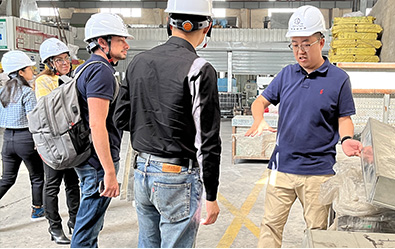loading...
- No. 9, Xingyuan South Street, Dongwaihuan Road, Zaoqiang County, Hengshui, Hebei, China
- admin@zjcomposites.com
- +86 15097380338
- Welcome to visit our website!
water softener system
Understanding Water Softener Systems Why They Matter
Water softener systems have become increasingly important in households across the globe, particularly in regions with high mineral content in their water supply. Hard water, which contains a high concentration of calcium and magnesium, can wreak havoc on plumbing systems, appliances, and even skin and hair. To combat these issues, many homeowners have turned to water softener systems to improve their quality of life and extend the lifespan of their appliances.
What is Hard Water?
Hard water is characterized by elevated levels of dissolved minerals, primarily calcium and magnesium. When water passes through limestone or chalk deposits, it picks up these minerals, which can lead to several inconveniences. One of the most significant problems associated with hard water is scale buildup in pipes, water heaters, and other appliances. This buildup restricts the flow of water, reduces efficiency, and can lead to costly repairs or replacements over time.
Additionally, hard water can impact household chores. It can make soap less effective, requiring more soap or detergent to achieve the desired lather and cleaning power. This not only leads to increased household expenses but can also leave behind soap scum on dishes, bathtubs, and sinks, creating additional cleaning burdens. Furthermore, individuals with hard water often report experiencing dry skin and hair after bathing, as the minerals strip away natural oils.
How Do Water Softeners Work?
Water softeners work through a process known as ion exchange. The system contains resin beads that are charged with sodium ions. When hard water flows through the system, the calcium and magnesium ions are attracted to the resin beads, where they are exchanged for sodium ions. This process effectively removes the hard minerals from the water, resulting in softened water that is gentler on skin, hair, and household surfaces.
A typical water softener system will require regular maintenance, including the periodic replenishment of salt used in the ion exchange process. As the resin beads become saturated with calcium and magnesium over time, they need to be regenerated. This is typically done by flushing the resin with a salty solution, which displaces the hardness ions and restores the system's effectiveness.
Benefits of Using a Water Softener
The advantages of incorporating a water softener system into your home are numerous
water softener system

1. Extended Appliance Lifespan By preventing scale buildup in appliances like dishwashers and washing machines, water softeners enhance their operational efficiency and lifespan. This can lead to significant cost savings over time.
2. Improved Soap Efficiency Softer water reacts better with soaps and detergents, translating to cleaner dishes and laundry with less product usage.
3. Enhanced Skin and Hair Health Individuals with hard water often report improvements in skin and hair condition after switching to softened water, as it is less drying and harsh.
4. Reduced Plumbing Issues Soft water prevents the hard mineral buildup in pipes that can lead to clogs and issues such as reduced water flow and pressure.
5. Cleaner Surfaces In kitchens and bathrooms, water softeners reduce soap scum and mineral deposits, making cleaning easier and more effective.
Considerations When Choosing a Water Softener
When selecting a water softener, homeowners should consider several factors, including the hardness level of their water, the size of their household, and the type of system that fits best with their water usage patterns. There are various types of water softeners, including salt-based, salt-free, and dual-tank systems, each offering different benefits.
It’s also essential to consider the environmental impact of using a water softener, particularly regarding salt discharge into the water supply, which can be a concern in some areas. Exploring options such as salt-free water conditioners or systems that limit salt discharge may align better with sustainability goals.
Conclusion
In summary, water softener systems serve as an invaluable addition to many households struggling with the challenges posed by hard water. By investing in a quality water softener, homeowners can enjoy a myriad of benefits, including better appliance performance, improved skin and hair health, and reduced cleaning efforts. As water quality continues to be a significant concern, understanding and utilizing this technology can lead to a more comfortable and sustainable living environment.
-
The Rise of FRP Profiles: Strong, Lightweight, and Built to LastNewsJul.14,2025
-
SMC Panel Tanks: A Modern Water Storage Solution for All EnvironmentsNewsJul.14,2025
-
GRP Grating: A Modern Solution for Safe and Durable Access SystemsNewsJul.14,2025
-
Galvanized Steel Water Tanks: Durable, Reliable, and Ready for UseNewsJul.14,2025
-
FRP Mini Mesh Grating: The Safer, Smarter Flooring SolutionNewsJul.14,2025
-
Exploring FRP Vessels: Durable Solutions for Modern Fluid HandlingNewsJul.14,2025
-
GRP Structures: The Future of Lightweight, High-Performance EngineeringNewsJun.20,2025
